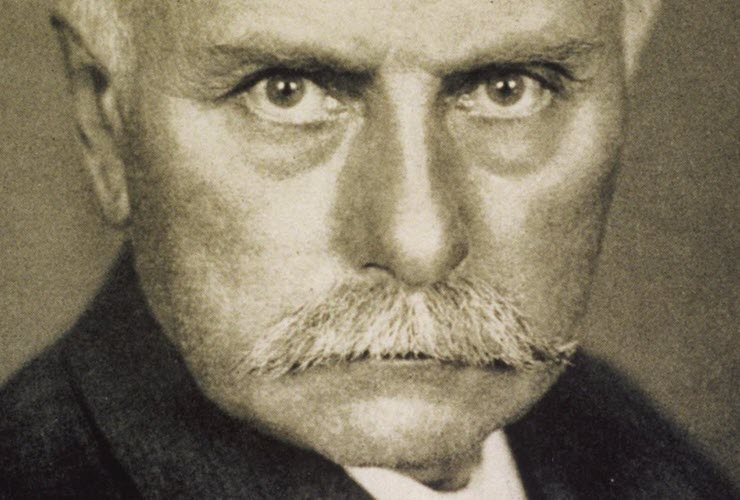The Life and Achievements of Johannes Stark

Johannes Stark (15 April 1874 – 21 June 1957) was a German physicist who made significant contributions to the field of physics, particularly in the study of electricity and magnetism. He was awarded the Nobel Prize in Physics in 1919.
Early Life And Education
Johannes Stark, the German physicist and Nobel laureate, was born on April 15, 1874, in Schickenhof, Bavaria, which is now part of Freihung. He was the son of a landed proprietor. Stark’s educational journey began at the Gymnasium in Bayreuth and continued in Regensburg. He pursued higher education at the University of Munich, where he studied physics, mathematics, chemistry, and crystallography from 1894 until his graduation in 1897. His doctoral dissertation was titled “Untersuchung über einige physikalische, vorzüglich optische Eigenschaften des Rußes” (Investigation of some physical, particularly optical properties of soot). This early academic foundation laid the groundwork for his later contributions to physics, including the discovery of the Stark effect, which earned him the Nobel Prize in Physics in 1919.
Career And Achievements
Johannes Stark most renowned scientific contribution is the discovery of the Stark effect in 1913, which describes the splitting of spectral lines in electric fields, a discovery that earned him the Nobel Prize in Physics in 1919. His academic journey began with a Ph.D. from the University of Munich in 1897, after which he held positions at several prestigious institutions, including the University of Göttingen and RWTH Aachen University. Stark’s work extended beyond academia; he was appointed president of the Reich Physical-Technical Institute and the German Research Foundation during the 1930s. However, his support for Adolf Hitler and involvement in the Deutsche Physik movement, which aimed to expel Jewish scientists from German physics, cast a shadow over his scientific legacy. After World War II, Stark was classified as a “Major Offender” in the denazification process due to his active participation in the Nazi regime. Despite these controversies, Stark’s scientific contributions remain influential, particularly his work on the Doppler effect in canal rays and his extensive research on electricity and optics. He was also a recipient of the Matteucci Medal, the Baumgartner Prize of the Vienna Academy of Sciences, and the Vahlbruch Prize of the Göttingen Academy of Sciences, reflecting his impact on the field of physics.
Notable Events And Milestones
Johannes Stark early education in physics, mathematics, chemistry, and crystallography at the University of Munich laid the foundation for his future discoveries. Stark’s doctoral dissertation on the optical properties of soot hinted at his penchant for exploring the interaction of light and matter. By 1900, he had become a lecturer at the University of Göttingen, marking the beginning of a distinguished academic career that would see him serve at various institutions, including the University of Greifswald and the University of Würzburg.
Stark’s scientific achievements are most notably encapsulated in his discovery of the Doppler effect in canal rays and the splitting of spectral lines in electric fields, a phenomenon now known as the Stark effect. This groundbreaking work, which earned him the Nobel Prize in Physics in 1919, advanced the understanding of atomic and quantum structures, influencing the development of quantum mechanics—a cornerstone of modern physics. His research provided insights into the behavior of electrons and photons, laying the groundwork for numerous applications in spectroscopy and quantum electronics. However, Stark’s legacy is also marred by his political affiliations and actions during the 1920s and 1930s. An early supporter of Adolf Hitler, Stark played a significant role in the Deutsche Physik movement, which aimed to align physics in Germany with Nazi ideologies, often at the expense of dismissing and persecuting Jewish scientists. His tenure as president of the Reich Physical-Technical Institute and the German Research Foundation during the Nazi regime further solidified his controversial standing in history.
After World War II, Stark faced consequences for his involvement with the Nazis, being classified as a “Major Offender” in the denazification process and sentenced to a labor camp. This period of his life serves as a stark reminder of the complex interplay between science, politics, and morality. Stark’s scientific contributions, particularly the Stark effect, continue to be a vital part of physics education and research. His work has influenced not only the field of spectroscopy but also the broader understanding of atomic and molecular structures.
Awards And Honors
- Nobel Prize in Physics (1919): Awarded for his discovery of the Doppler effect in canal rays and the splitting of spectral lines in electric fields, known as the Stark effect.
- Matteucci Medal (1915): Bestowed by the Rome Academy for his contributions to the field of physics.
- Baumgartner Prize of the Vienna Academy of Sciences (1910): Recognized his significant scientific achievements.
- Vahlbruch Prize of the Göttingen Academy of Sciences (1914): Honored his outstanding work in physics.
- Corresponding member of several academies: Including those in Göttingen, Rome, Leyden, Vienna, and Calcutta, acknowledging his esteemed status in the scientific community.
Additional Resources
Books:
- “Johannes Stark – Biographical” available on NobelPrize.org provides an in-depth look at Stark’s life and work.
- “Electricity in Gases” by Johannes Stark is one of his significant works, detailing his research findings.
Documentaries:
- A documentary featuring Johannes Stark and other Nobel Laureates can be found on NobelPrize.org, offering a glimpse into his contributions to physics.
Museums:
- While not directly related to Johannes Stark, the Stark Museum of Art holds a collection of Western American art and could be of interest to those exploring historical figures and their times.
These resources can provide a comprehensive understanding of Johannes Stark’s scientific contributions and historical context. For more detailed research, academic journals and archives may also hold valuable information.
Observer Voice is the one stop site for National, International news, Sports, Editor’s Choice, Art/culture contents, Quotes and much more. We also cover historical contents. Historical contents includes World History, Indian History, and what happened today. The website also covers Entertainment across the India and World.

